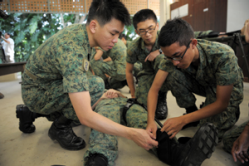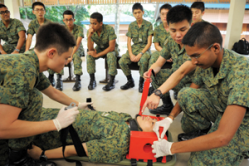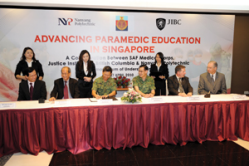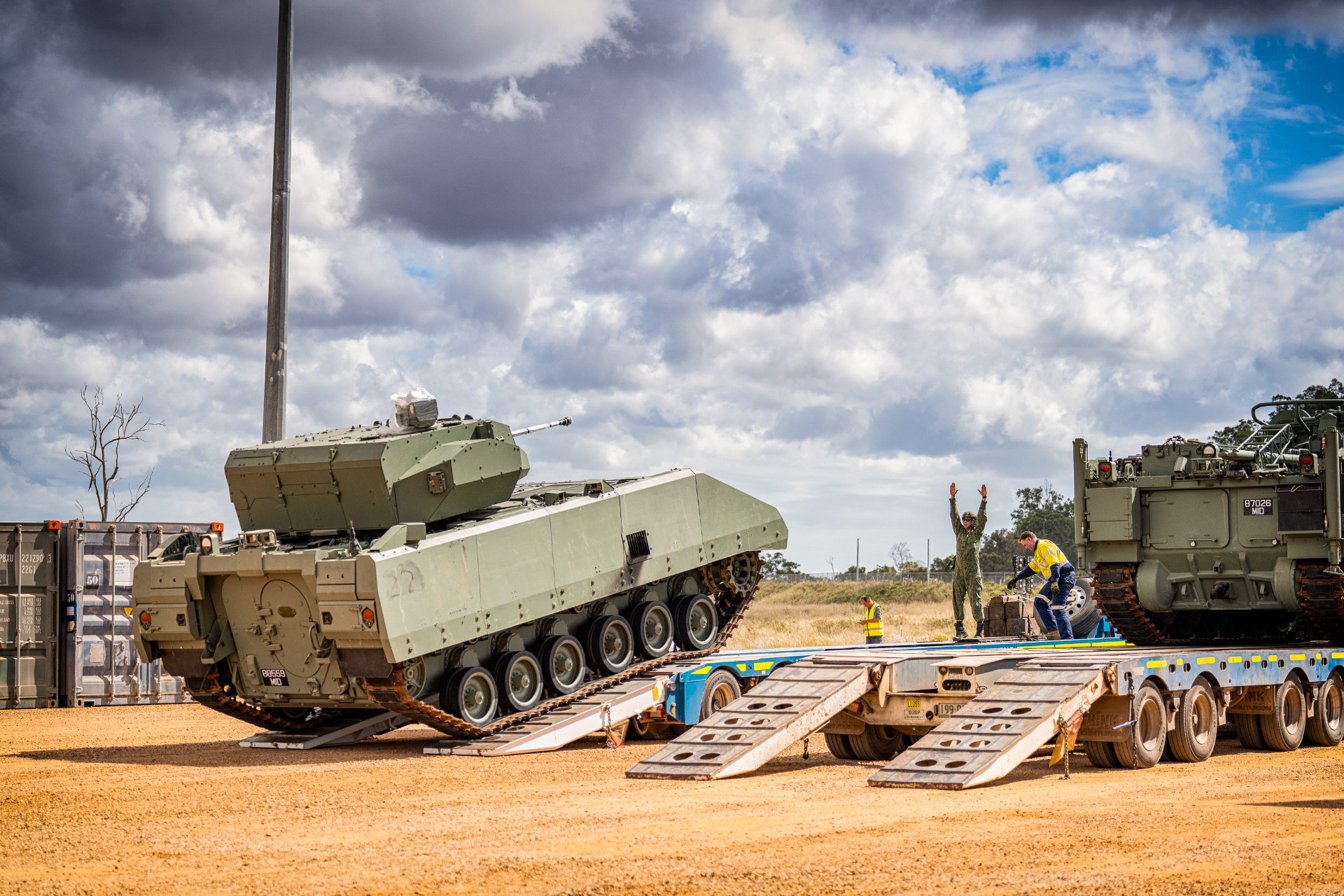OPS & TRAINING
SKILLS UPGRADE FOR COMBAT MEDICS
14 Jun 2010
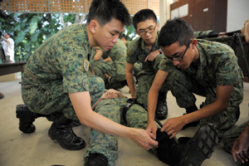
Recent improvements to paramedic training equip Singapore Armed Forces (SAF) combat medics with the knowledge and skills to provide better medical intervention in treating injuries and saving lives.
In its continuing effort to provide its medics with better training so that servicemen can receive the best possible medical and health care, the SAF has been partnering international and local educational institutions such as the Justice Institute of British Columbia (JIBC) and Nanyang Polytechnic (NYP) in developing up-to-date curricula and courses.
The latest effort came with the signing of two separate Memoranda of Understanding (MOUs) - between the SAF and NYP, as well as between the SAF and JIBC - on 27 Apr at Nee Soon Camp. The MOUs reflected commitment by all parties to further education, research and professional development in the fields of paramedic and pre-hospital care as they cemented the accreditation of courses by JIBC and opened up opportunities for further education to SAF personnel.
JIBC is Canada's leading public safety educator while NYP is the SAF's local training partner in developing courses for Operationally Ready National Servicemen (NSmen) and Regular medics.
For the SAF Medical Corps, the signings also marked the launch of a new education framework as new courses are being introduced to replace the existing medic training programmes. Said Chief of SAF Medical Corps, Brigadier-General (BG) (Dr) Benjamin Seet: "The changes include enhancing the curriculum of our courses, a greater focus on clinical proficiency rather than academic knowledge, and benchmarking the quality of our education to national and international standards."
Improved curriculum
To train paramedics to better respond to medical emergencies, a 12-week Emergency Medical Technician (EMT) course, conducted by the SAF Medical Corps, was introduced in September last year for all Full-time National Servicemen (NSF) medics.
Its predecessor, the Basic Medic Course, focused on training medics in first aid, while the new course strengthens medics' basic medical knowledge and trains them to diagnose and administer treatment for conditions such as chest pains and life-threatening allergic reactions.
ME2 Ker Kian Tiong (centre) showing NSF medics how to put on a cervical collar (or neck brace) to support the casualty's spinal cord.
NSF and Regular medics with nursing diplomas will go through the Emergency Medical Specialists (EMS) course which is also conducted by the SAF Medical Corps. The seven-week course, which will commence in June this year, is based on a more advanced curriculum of the EMT course, and covers areas such as ambulance crew leadership, patient counselling and crisis management.
Following the MOU signing, both the EMT and EMS courses will be accredited by JIBC as the institute's School of Health Sciences endorses both training curricula.
This increase in knowledge and training capabilities means that medics can do more to stabilise patients prior to arriving at the hospital, explained Dr Francis Lee, who conducts lectures for paramedics in the SAF. He also heads the Accident and Emergency Department at Alexandra Hospital.
Said Dr Lee: "What this ultimately translates into is increased patient survivability of about 15 percent to 20 percent. A patient who could have died along the way...can potentially survive with paramedics having a higher education."
Representatives from the SAF, NYP and JIBC signing the MOUs, which was witnessed by Chief of Defence Force Major-General Neo Kian Hong (seated, third from left).
Continuing education
For NSmen and Regular medics, the MOU with NYP will provide them with training in basic scrub medic skills and post-surgery critical care. Conducted by NYP s School of Health Sciences, the course teaches trainees how to manage casualties in operating theatres and intensive care units.
Military Expert (ME) 1 Yang Qunchuan, who went through the course in 2009, spoke of how he found the knowledge gleaned from the course to be useful during last year's earthquake relief mission in Padang, Indonesia.
"As the course taught me the use of different types of surgical instruments in the operating theatres, such as needles, sutures, clamps and blades, I was able to put all this knowledge to good use when we had more than 10 operations a day during the mission," he told PIONEER.
For Regular medics, the two MOUs will allow them to pursue diplomas and advanced diplomas in paramedic care.
Designed by JIBC and NYP respectively, the Primary Care Paramedic and Advanced Care Paramedic programmes will provide medics with a structured framework for professional advancement. Due to commence later this year, these courses will train Regular medics in disaster relief mission operations, as well as emergency medical treatment during peacetime.
An SAF Medical Training Institute senior instructor, ME1 Amanda Huang, is already looking forward to upgrading her skills through these new diploma courses.
"This is very significant for Regulars like me because medical training is something that requires you to keep up with advances in technology and research... These courses help us to keep on learning," she said.
With better educated and more highly-trained paramedics, casualties can receive better treatment faster, said Mr Jack McGee, President of JIBC.
"This will lessen the complications down the road for patients, and that will mean a shorter stay in the hospital... It's a credit to the SAF's thinking and strategic vision for realising the value of paramedicine in helping patients to recover more quickly," he said.
ALSO READ IN OPS & TRAINING
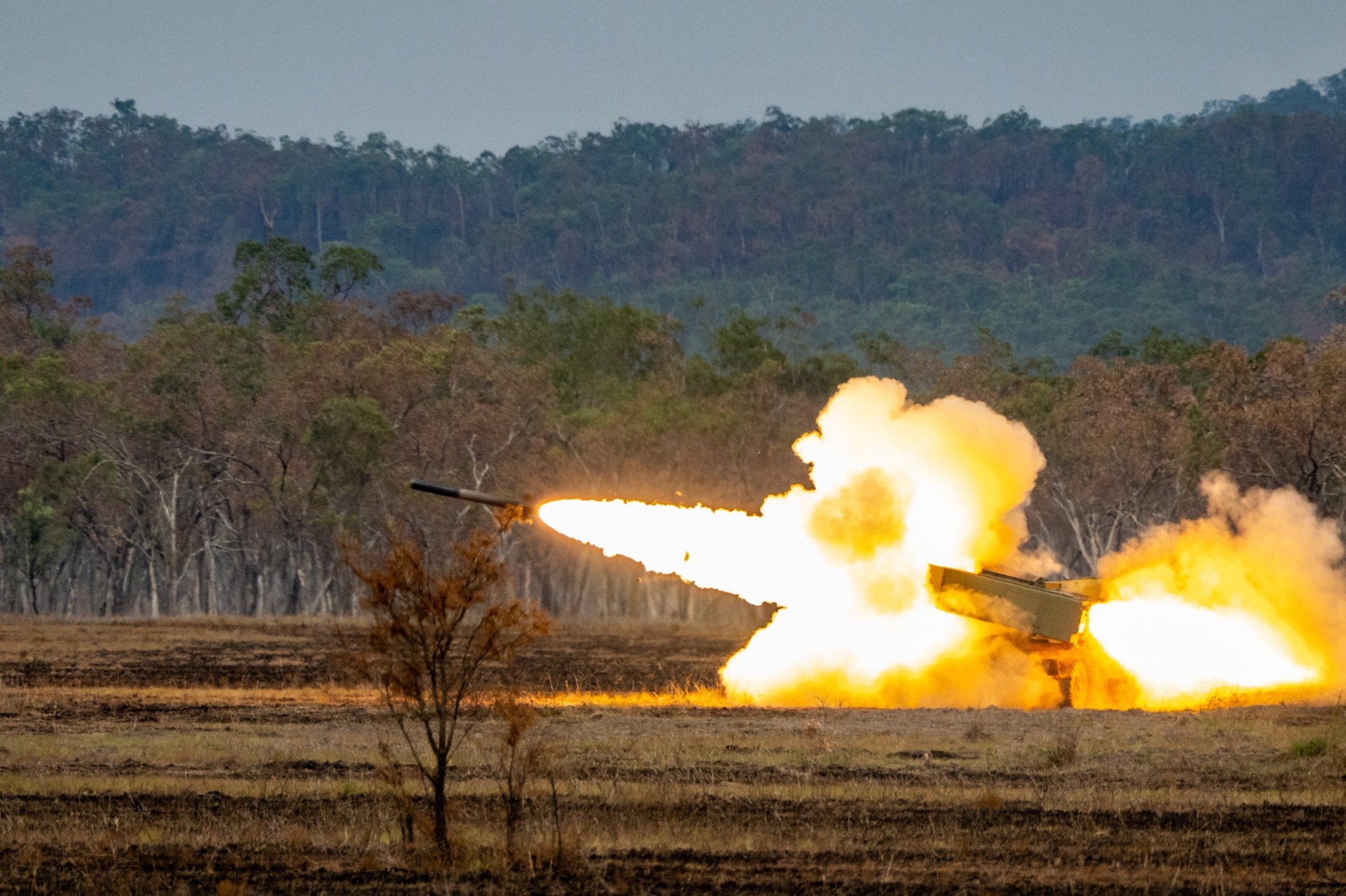
Exercise Wallaby 2025: To see better, shoot faster
31 Oct 2025
The SAF focuses on complex strike missions and multi-domain integration in Exercise Wallaby 2025, the 35th edition of its largest unilateral overseas exercise.
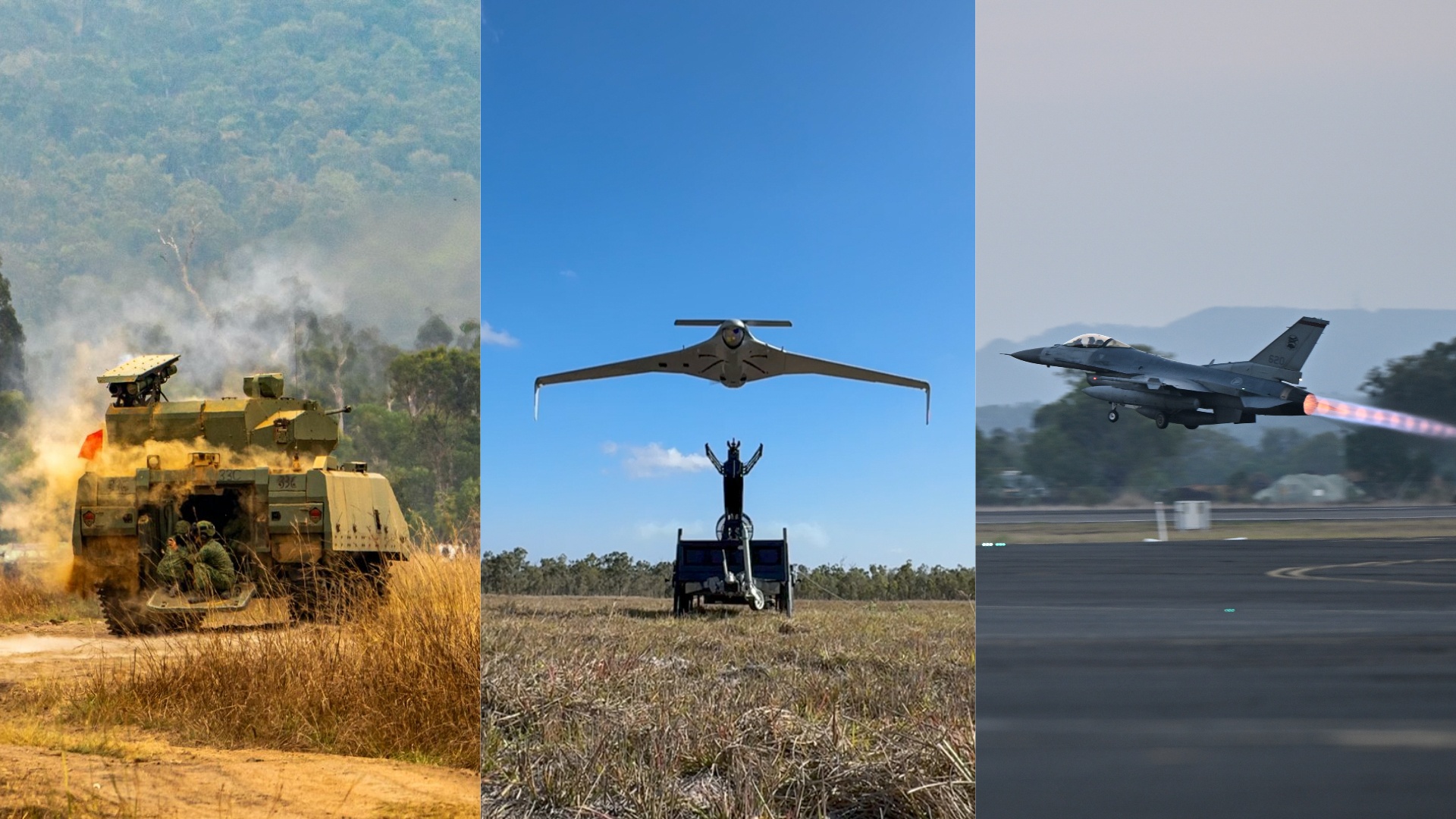
Ex Wallaby 25 – Greater Integration and Complexity
25 Oct 2025
The 35th edition of the SAF’s largest unilateral overseas exercise is an opportunity for expanded scale and deeper integration towards an effective, networked fighting force.

Ex Forging Sabre ramps up use of unmanned assets in integrated strike operations
12 Sep 2025
In this 10th edition of Exercise Forging Sabre, the SAF sharpened its cutting edge for the dynamic modern battlefield, with expanded integration between manned and unmanned platforms.

